Obituaries & Tributes
The New York Times, August 4, 2023
By Alexandra, Frederick, Clelia, and Jack Peters
COVINGTON — Dr. Coline Elizabeth. The brilliant, beautiful, glamorous Coline Covington, AKA “Kitty,” died on Monday July 17 in London, UK, the city in which she had made her home for the past 45 years. Coline was diagnosed with an inoperable glioblastoma in April of this year and, as she had fervently hoped, died without serious pain and with no loss of her always acute mental faculties. Coline was a graduate of the Chapin School, Princeton University, Cambridge University, and the London School of Economics. She was a highly accomplished psychoanalyst and former chair of the British Psychoanalytic Council, and the author of numerous books and articles on political/social psychology. Widely read, extremely funny, impatient, loving and erudite, she was beloved by a wide circle of friends in America, the UK and internationally. At Coline’s request, memorial gatherings both in London and New York will be private, and a virtual memorial service will take place on December 3, 2023. We, her American “family,” will miss her swishing skirts, high heeled boots, and her sparkling sense of humor every day.
The Times of London, September 30, 2023
Coline Covington, 70: Leading psychoanalyst concerned with questions of good and evil
In the 1970s the psychoanalyst Coline Covington was studying for a PhD in juvenile crime at the London School of Economics when she sought a meeting with the Metropolitan Police.
The psychological complexities behind wrongdoings was something that preoccupied her. She started to develop programmes to prevent young offenders being sent to prison, and in 1975 helped to set up with the Met the capital’s first victim-offender mediation project.
Her studies would lead to her first book in a trilogy published posthumously. Fascinated by what causes seemingly “ordinary” people to commit a crime, in 2016 she published Everyday Evils. In it she examines the atrocities of the Nazi concentration camps, Islamic State and the Rwandan genocide, and looks at the psychodynamics of disassociations.
She followed the work with For Goodness Sake, which highlights the courage of individuals. In the last of the trilogy, collective guilt is the focus and she concludes with a chapter on Russia’s war with Ukraine.
Yet Coline’s main profession was as a Jungian psychoanalyst. In 2003, in an attempt to highlight the work of an early female psychoanalyst and lover of Jung, she co-wrote Sabina Spielrein: Forgotten Pioneer of Psychoanalysis. When the actress Keira Knightley was studying for the role in David Cronenberg’s A Dangerous Method in 2011, it was Coline who she approached to better understand the character.
Coline Covington was born in North Carolina in the US in 1953 to Treadwell Covington, who worked in advertising, and Coline (née Smith), who became editor of Glamour magazine. When she was four the family moved to the Upper East Side, New York, and Coline attended the Chapin School; in 1970 she was one of the first women to win a place at Princeton to read political theory: she followed it with an MPhil in criminology at Cambridge University before going to the LSE.
In 1983, in a match that lasted about ten years, she married Anthony Sheil, a literary agent, and lived in Hampstead, north London. In 2002 she married Simon Gillespie, an art restorer, but it ended in divorce.
In 2000 she was made chairwoman of the British Psychoanalytic Council. Her interest in politics and international relations led to her being appointed a senior scholar at the Wilson Center in Washington DC in 2011 and a visiting research fellow at the Open University. In recent years Coline was a member of the International Dialogue Initiative, which examines how past trauma and anxieties affect large groups and their attitude to conflict.
Surrounding herself with a diverse circle of accomplished friends, Coline regularly attended concerts and plays. A natural elegance manifested itself in her beautifully appointed house and in her appearance.
While she did not suffer fools easily — particularly if an instruction had to be repeated or a friend was slow to get the drift of an argument — she reserved her acts of great kindness to those who were close to her. As she wrote in her introduction to For Goodness Sake, “We cannot act in good conscience without acting on behalf of others.”
International Dialogue Initiative (IDI)
Coline Covington (In Memoriam) | Fellow
Coline Covington worked as a Jungian analyst in private practice in London for many years. Born in the United States, Coline came to England after receiving her B.A. in political theory from Princeton University. She went on to do an M.Phil. in criminology at Cambridge University and a Ph.D. in sociology at LSE. She worked for many years as a consultant to local government agencies throughout the UK in setting up programmes for young offenders as alternatives to prison. In conjunction with the Metropolitan Police, Coline set up the first mediation scheme between victims and offenders in the United Kingdom.
Coline was a chair of the British Psychoanalytic Council, an association of member institutions representing psychoanalytic psychotherapy training organizations within the UK. She was a Training Analyst of the Society of Analytical Psychology and the British Psychotherapy Foundation, and a former Editor of the international Journal of Analytical Psychology.
Coline’s publications include Terrorism and War: Unconscious Dynamics of Political Violence, with an Introduction by Lord Alderdice (Karnac, 2002); Sabina Spielrein: Forgotten Pioneer of Psychoanalysis (Routledge, 2003); Shrinking the News: Headline Stories on the Couch (Karnac, 2013); Sabina Spielrein: Forgotten Pioneer of Psychoanalysis, 2nd Edition (Routledge, forthcoming); and a recent trilogy examining current cultural dynamics: Everyday Evils: A Psychoanalytic View of Evil and Morality (Routledge, 2016), For Goodness Sake: Bravery, Patriotism and Identity (Phoenix Publishing House, 2020) and Who’s to Blame: Collective Guilt on Trial (Routledge, 2023).. Coline was also a columnist for the online newspaper The Week (www.theweek.co.uk).
Coline brought warmth, insightfulness and humanity to everything she did. Her last IDI project was to arrange, and plan to moderate, a presentation by Lord David Owen on “The Dynamics of War Today.” This will be the first in the IDI’s The Psychology of Societal Conflict series, which was an initiative dear to Coline’s heart and which she planned to lead. It has been our great privilege to have worked with, and shared the wonderful company of, Coline for so many years. We are heartbroken at her loss and will miss her deeply.
The Guardian, August 26, 2023
By Karen Ciclitira
My friend Coline Covington, who has died aged 70 of a brain tumour, was a distinguished Jungian psychoanalyst who wrote books and articles combining psychoanalytic ideas with political and social theory. Many of them explored large themes such as identity, evil and patriotism.
After studying political theory at Princeton University and for a diploma (now MPhil, 1976) at the Institute of Criminology, Cambridge University, she gained a PhD (1980) from the London School of Economics with a thesis on juvenile crime. In 1975 she helped set up the first victim-offender mediation project in the UK with the Metropolitan police.
Having written two books on Carl Jung’s patient Sabina Spielrein, she was delighted when the actor Keira Knightley, who was playing the part of Spielrein in the 2011 film A Dangerous Method, visited her to learn more about the character. Her other books include Shrinking the News: Headline Stories on the Couch (2014) and For Goodness Sake: Bravery, Patriotism and Identity (2020). She was also involved in the International Dialogue Initiative, a thinktank founded to bring politicians and psychoanalysts together to try to understand the effect of trauma and anxiety on political conflicts.
Born in North Carolina, to Coline (nee Smith), a journalist and editor of Glamour magazine, and Treadwell Covington, a film producer and composer, Coline said she barely wore clothes until she was four, and when her family moved first to Florida and then to New York she often had to interpret her mother’s strong southern accent for locals. She attended Chapin school in New York City.
Coline was married twice: to the literary agent Anthony Sheil in 1983, and then in 2002 to the art restorer Simon Gillespie, with whom from the following year she ran an art dealership in Islington. Both marriages ended in divorce.
Known for her elegant dress sense, Coline enjoyed food, theatre, opera and art, and displayed an astonishing capacity for hard work. She conducted a full therapeutic practice for 43 years alongside her many other activities, and continued working with patients until two months before she died.
At her wish, Coline’s most recent book, Who’s to Blame? Collective Guilt on Trial, will be launched at a memorial event for her in London.
She was devoted to her goddaughter, Clelia Warburg Peters, who looked after her in her final weeks.
ROOM, October 2023: Collectively Remembering Coline Covington
By Janet Fisher
Five members of ROOM’s editorial board decided to read and discuss Coline Covington’s latest book, Who’s to Blame? Collective Guilt on Trial, the third of a series of writings that interweave psychoanalytic ideas with political, social, and group theories, to arrive at the possibility of a moral world. This was not intended to be her final writing on the topic, only to lay out some of the theoretical problems involved in thinking about acts of destruction and possible paths to repair and reconciliation. In her last weeks of life, Coline learned of our plan to honor rather than just review her book, for which she was touched and thankful.
Covington’s book tackles the question of whether collective blame, guilt, and reparation are necessary and effective steps in holding individuals and nations accountable for acts of evil, atrocities visited on others on a large scale. Her case examples include America’s centuries-old perpetuation of slavery, Germany’s responsibility for the Holocaust, the current war between Russia and Ukraine, and other examples of our human capacity for destructiveness.
Covington wonders whether collective guilt is a viable concept. Can descendants of regimes that perpetrated crimes against humanity be held accountable for acts they did not perpetrate and made to participate in acts of atonement? Is it guilt or shame that is actually the relevant variable? Can we ever undo evil? Is it collective guilt or collective responsibility that is at issue? Does it require different models to account for guilt at the individual vs. collective level? She considers hatred, evil, revenge, commemorative gestures to embody guilt and reparation, and the overarching question of whether owning, atoning, and repairing are ever fully possible. When considering her thoughts about post-Holocaust Germany, we explored the difference between mere gestures and truly shouldering responsibility, as well as how long this kind of healing requires. If we assign the working-through of culpability to public acts of owning guilt, taking responsibility, and bearing shame, are we acting on a mistaken belief that one can ever “move on”? Perhaps such ownership can only ever be attempted, incomplete and needing to be monitored. We want to believe that guilt cleanses us, restores our goodness, but our humanity requires external controls, a rule of law.
In Kleinian theory, there is always an ongoing flux between constructive and destructive processes, occurring intrapsychically and in exchange with the external world. The central challenge is to be able to preserve the possibility of goodness and psychic equilibrium by bringing progressive and regressive trends together in such a way that we own our destructiveness, but repair and progression triumph. Can this happen on a world stage?
We are honored to have been able to learn from Coline’s life works, to have had her support as a reader, contributor, and proponent of ROOM, and for this opportunity for scholarly and searching conversation that captures her extraordinary devotion to the possibility of occupying our compassionate humanity more fully.
- From our first year, we remember with gratitude the essays Coline contributed to ROOM:
Virtual Memorial Service for Coline Covington
Sunday, December 3, 2023
4:00pm GMT / 11:00am EST
Clelia, Alexandra, and Frederick Peters invite you to view the virtual Memorial Service & Reception to honor Coline’s life and legacy.
Slideshow
Coline studied with the poet Mark Strand when she was at Princeton, and was a great admirer of his work.
The End
From The Continuous Life by Mark Strand
Not every man knows what he shall sing at the end,
Watching the pier as the ship sails away, or what it will seem like
When he’s held by the sea’s roar, motionless, there at the end,
Or what he shall hope for once it is clear that he’ll never go back.
When the time has passed to prune the rose or caress the cat,
When the sunset torching the lawn and the full moon icing it down
No longer appear, not every man knows what he’ll discover instead.
When the weight of the past leans against nothing, and the sky
Is no more than remembered light, and the stories of cirrus
And cumulus come to a close, and all the birds are suspended in flight,
Not every man knows what is waiting for him, or what he shall sing
When the ship he is on slips into darkness, there at the end.

Coline’s Publications
Coline was a celebrated author in the field of psychoanalytics. Here are some of her publications:
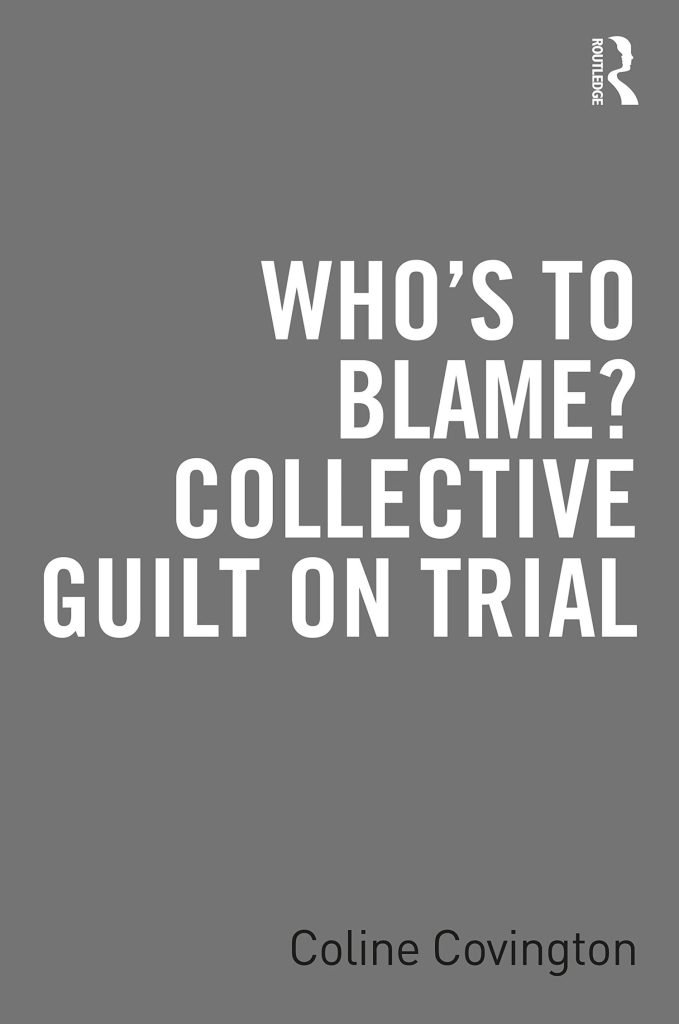
Who’s to Blame? Collective Guilt on Trial
Publisher Routledge, 2023
ISBN: 9781032460789
Who’s to Blame? Collective Guilt on Trial presents a psychoanalytic exploration of blame and collective guilt in the aftermath of large-scale atrocities that cause widespread trauma and victimization.
Coline Covington explores various aspects of social and collective guilt and considers how both perpetrators and victims make sense of their experiences, with particular reference to group behavior and political morality. Covington challenges the concept of collective guilt associated with the aftermath of large-scale atrocities such as the Holocaust and examines the moral pressure placed on perpetrators to exhibit guilt as part of a realignment of political power and a process of restoring social morality. Who’s to Blame? Collective Guilt on Trial concludes with a chapter-length case study examining Russia’s war in Ukraine.
Combining psychoanalytic ideas with political, philosophical and social theory, Who’s to Blame? Collective Guilt on Trial will be of great value to readers interested in questions of collective guilt, blame and the possibilities of atonement. It will also appeal to psychoanalysts in practice and in training, and to academics of psychoanalytic studies, political philosophy, sociology and conflict resolution.
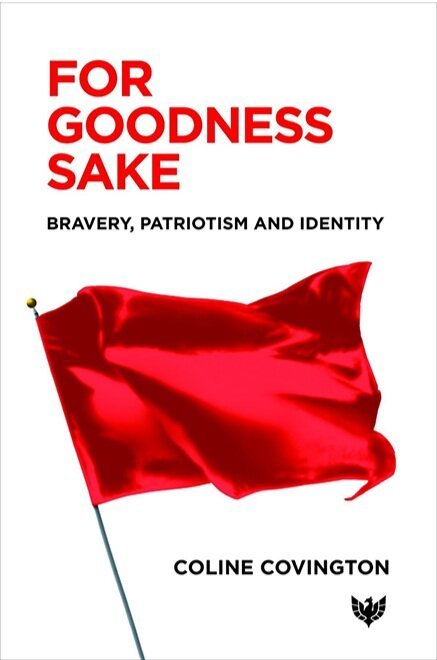
For Goodness Sake: Bravery, Patriotism and Identity
Publisher Phoenix Publishing House, 2020 – 260 Pages
ISBN: 9781912691357
An in-depth examination of the concept of bravery, patriotism and identity through the question, “What does it mean to be true to oneself”
Filled with fascinating real-life stories and fictional accounts that shine a light on what it takes to be a “hero” and how important our political beliefs are to our identity.
Written by renowned academic, Coline Covington, former consultant to criminal justice agencies and former Chair of the British Psychoanalytic Council.
In the midst of atrocities, there is the silent presence of the brave individuals who act and stand apart from the crowd, who risk their own lives by rescuing others or by voicing their dissent. The actions of these exceptional individuals raise questions as to why they were able to do what they did and why other people don’t. But if we look closer at their histories, we discover that they may not be as exceptional as we think.
Bravery takes different forms in different contexts. Such as the young male patient, a war hero, struggling to separate from his refugee parents. Or Bailey Thompson, the 17-year-old who rescued concert-goers under sniper fire in Las Vegas in 2017. Or the student protestors in Hong Kong marching to protect their future and beliefs. The compulsion to act bravely is largely ascribed to conscience, that is, being true to one’s beliefs. Those who act bravely do not feel as if they have a choice, because not to act is experienced as a betrayal of self. As such, bravery is a fundamental assertion not only of the self but of a moral order necessary to sustain the self.
The perfect book for these unprecedented times, as we all need to find our own inner resources to face whatever lies ahead.
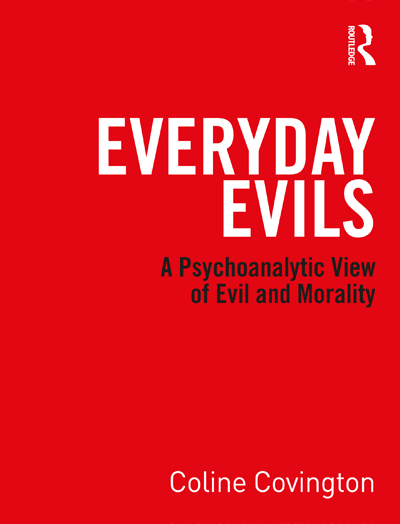
Everyday Evils: A Psychoanalytic View of Evil and Morality
Publisher Routledge, 2017 – 200 Pages
ISBN-10: 9781138819207
ISBN-13: 978-1138819207
Everyday Evils takes a psychoanalytic look at the evils committed by “ordinary” people in different contexts – from the Nazi concentration camps, to Stockholm Syndrome, to the atrocities publicized by Islamic State– and presents new perspectives on how such evil deeds come about as well as the extreme ways in which we deny the existence of evil.
Concepts of group behaviour, morality, trauma, and forgiveness are reconsidered within a multi-disciplinary framework. The psychodynamics of dissociation, and the capacity to witness evil acts while participating in them, raise questions about the origin of morality, and about the role of the observing ego in maintaining psychic equilibrium. Coline Covington examines how we demonize the “other” and how violent actions become normalized within communities, such as during the Rwandan genocide and Polish pogroms. The recent attraction of the millenarian theocracy of the Islamic State also highlights our fascination with violence and death. Covington emphasizes that evil comes about through a variety of causes and is highly contextual. It is our capacity to acknowledge the evils we live with, witness and commit that is vital to how we manage and respond to violence within ourselves and others and in mitigating our innate destructiveness. In conclusion, the book addresses how individuals and societies come to terms with evil, along with the problematic concept of forgiveness and the restoration of good.
Everyday Evils blends psychoanalytic concepts together with the disciplines of sociology, history, anthropology and philosophy, studies of violence and theology in order to develop a richer, deeper and more comprehensive understanding of evil. Intending to make the unthinkable thinkable, this book will appeal to scholars from across those disciplines, as well as psychoanalysts, psychotherapists and anyone who has ever asked the question: “How could anyone do something like that?”
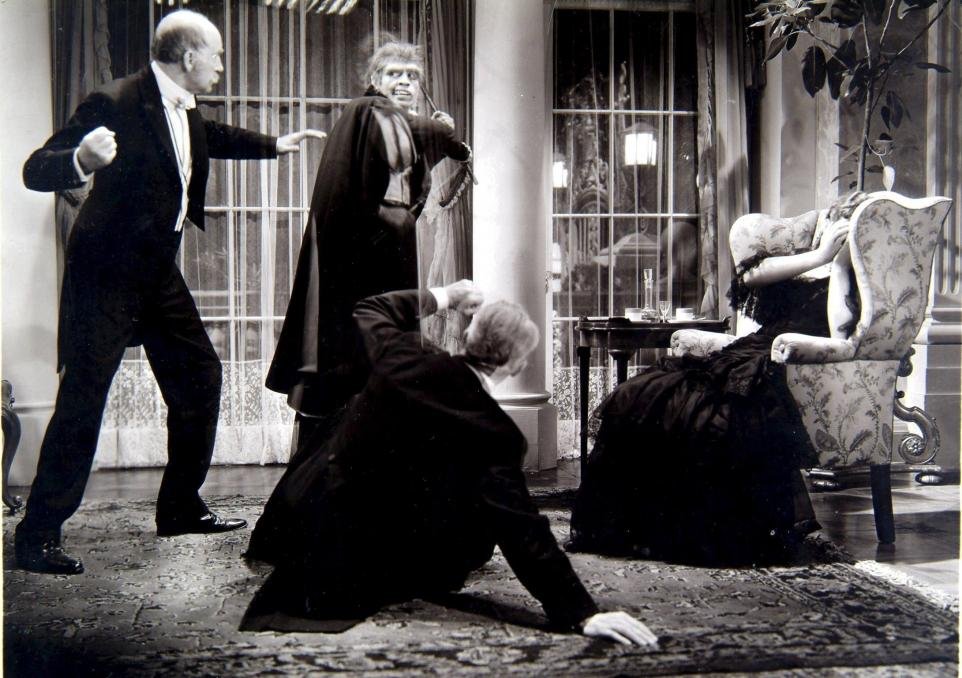
The capacity for evil lies within us all, argues psychoanalyst Dr Coline Covington
The Herald Scotland, 27 November 2016
A PATIENT of mine recently pointed out that there was going to be a super moon that evening. He added that the last super moon had occurred in 1947, just as the world was recovering from the Second World War. “Lunacy returns,” I noted, wryly.
Like the lunar cycle, are we in fact entering into a new phase of world politics that in some ways resembles the events leading up to the Second World War but in other ways differs? The atrocities of the Second World War…
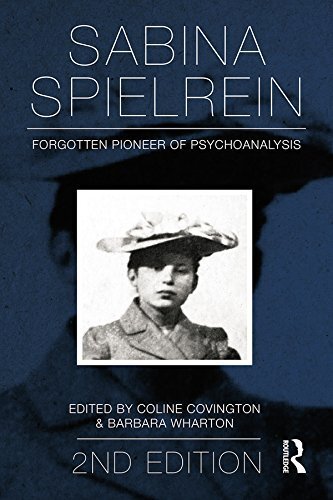
Sabina Spielrein: Forgotten Pioneer of Psychoanalysis, 2nd Edition
Publisher Routledge, 2015 – 278 Pages
ISBN-10: 041581748X
ISBN-13: 978-0415817486
Sabina Spielrein is perhaps best known for her love affair with her doctor, Carl Gustav Jung. Their intense therapeutic relationship led to a mutual fascination that lasted, for Spielrein, for the rest of her life. It is debatable whether Spielrein and Jung’s relationship was consummated, but it did give birth to some of the most important ideas within psychoanalysis and analytical psychology today, the most notable being that of the death instinct. But what happened to Spielrein and why have her story and work remained in the dark for so many years?
This second edition of Sabina Spielrein: Forgotten Pioneer of Psychoanalysis complements the first edition by retaining many of the most important documents about her life and work. Included in this edition are Jung’s hospital records of his treatment of Spielrein, Jung’s letters to Spielrein following her discharge in 1905, extracts from her personal diary, and her ground breaking paper on the development of language, “The origin of the child’s words Papa and Mama.” New material includes Spielrein’s famous paper, “Destruction as a cause of coming into being”, in which she formulates her theory of the death drive, a paper describing her place and contribution within Freud’s Vienna Circle, commentaries on the mutual erotic transference between Spielrein and Jung, and a theoretical discussion of her seminal ideas on aggression.
This new edition compiles the essential writings of Spielrein along with commentaries by prominent psychoanalytic and Jungian scholars. It is the definitive source book on Spielrein for clinicians, scholars and historians of psychoanalysis.
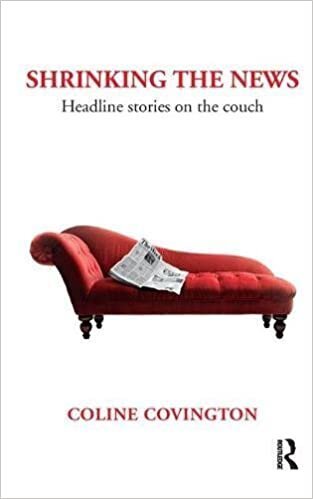
Shrinking the News: Headline Stories on the Couch
Publisher Karnac Books, 2014 – 256 Pages
ISBN-10: 0367102471
ISBN-13: 978-0367102470
Shrinking the News brings together the author’s wide range of articles from her regular column in the online newspaper, The Week. The articles cover current events from October 2008 until December 2010, concluding with more recent articles from 2013. These articles form a fascinating psychoanalytic insight on crime, politics, the economy, sports and stardom, and the quirky, bizarre events and trends that make up our daily life. The widespread popularity of these articles is a testimony to the public’s interest in a psychoanalytic view of the world around us and why people do the things they do.
Why, for instance, would an American vote for Sarah Palin? Why would a well-educated Bishop deny the holocaust? What impulses lead bankers to be reckless, girls to glory in promiscuity, and what does Julian Assange’s fight for justice have to do with his mother?.
Coline Covington is the indispensable guide to what lies behind these major news items – and more. Funny, quirky, and insightful, each short article is a gem!
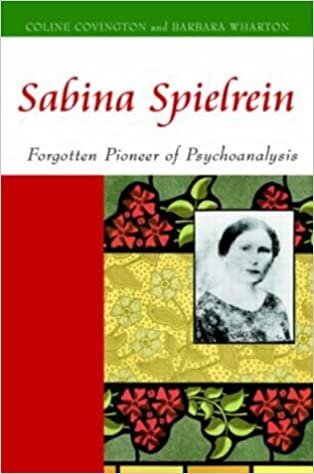
Sabina Spielrein: Forgotten Pioneer of Psychoanalysis
Publisher Routledge, 2003 – 328 Pages
ISBN-10: 1583919031
ISBN-13: 978-1583919033
Sabina Spielrein is perhaps best known for her love affair with her doctor, Carl Gustav Jung. She met Jung when she was admitted to Burghölzli Clinic in Zürich in 1904 as a young woman of 19, where Jung diagnosed the highly intelligent woman as hysteric. Their intense relationship gave rise to some of the most important ideas within psychoanalysis and analytical psychology today, notably the death instinct.
Sabina Spielrein: Forgotten Pioneer of Psychoanalysis is an invaluable collection of papers that attempt to answer why Spielrein’s story and work have remained in the dark for so long. The distinguished editors draw together Jung’s hospital records of his treatment of Spielrein, commentaries on her relationship with Jung, extracts from Spielrein’s diary, Jung’s letters to Spielrein, and short theoretical pieces from her groundbreaking paper on the development of language “The origin of the child’s words Papa and Mama”, to shed new light on one of the first women psychoanalysts’ life and work.
Illustrated by historical documents that have never before been published in English book form, Sabina Spielrein: Forgotten Pioneer of Psychoanalysis encourages and facilitates further historical research into, and development of the ideas we’ve inherited from Sabina Spielrein’s treatment, writing and relationships. This book will be of great interest to psychoanalysts, analytical psychologists, psychotherapists, historians, students and all those interested in the history of psychoanalysis and psychoanalytic ideas.

Terrorism and War: Unconscious Dynamics of Political Violence
Publisher Karnac Books, 2002 – 435 Pages
ISBN: 9781855759428
ISBN 10: 185575942X
Following the attacks of September 11th 2001, one of the resounding questions asked was “What would make anyone do such a thing?” The psychological mentality of the suicidal terrorist left a gaping hole in people’s understanding. This essential volume represents a much-needed effort to collate and examine some of the material already at our disposal as an encouragement to serious thought on this question and other related questions.’If terrorism is not new, what is it about the recent attacks that gives us a sense that something has changed? Is it the scale of the destruction, or the anxiety that we are facing some altogether new uncertainty? Are we in some sense facing a new enemy? …In reflecting on these and other related questions we may be facing a similar watershed of understanding to that faced by Freud at the end of the Great War…In the absence of progress in our thinking today, political leaders and public opinion will likely turn to previous political and religious ideas, investing in them with a fundamentalist certainty that spells disaster.
